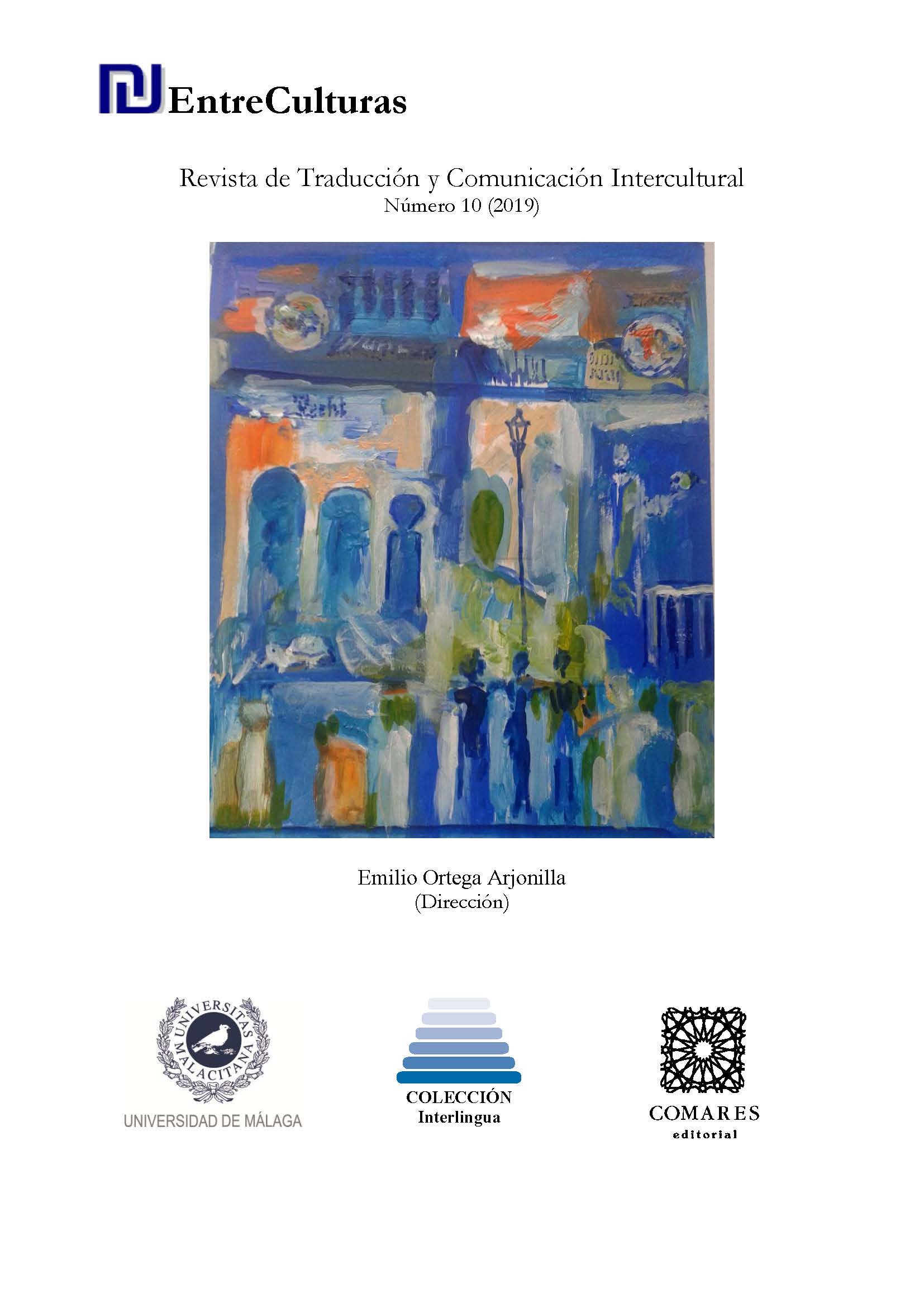Concept and term accuracy in police and judicial field: translation and transcription of phone taps
DOI:
https://doi.org/10.24310/Entreculturasertci.v1i10.9606Keywords:
telephone interceptions, court interpreting, community interpretingAbstract
The objective of this research is to analyze a communicative activity of enormous legal and judicial importance, namely, interpretation and translation in judicial processes. More specifically, the aim is to see the framework of performance of the police interpreter and analyze the interpretive processes of telephone interceptions.
This activity, for which unskilled personnel are very often hired, requires a series of skills and aptitudes that transcend any other type of regular and regulated interpretation. The corpus consists of the introspection of the researcher himself as interpreter and former coordinator of a team of interpreters in Social Services, as well as results of an open survey to other interpreters of this modality.
Downloads
Metrics
References
Cavero Forradellas, G. (S./F.): “La nueva regulación de las intervenciones telefónicas en la ley de enjuiciamiento criminal, en https://www.fiscal.es/fiscal/PA_WebApp_SGNTJ_NFIS/descarga/Ponencia%20Cavero%20F orradellas,%20Gerardo.pdf?idFile=38380825-2079-4304-af21-40d9010e0ae9 [21/10/2018].
Cayón Sáez, L. J. (2013). Sobre la interpretación para los servicios públicos en los ámbitos judicial y policial en la provincia de Málaga: estudio de caso. Tesis doctoral. Málaga, Universidad de Málaga.
González Rodríguez, M. J. (2015). “Interpretación para escuchas telefónicas: de la experiencia profesional a su didáctica”, en Nuevos horizontes en los Estudios de Traducción e Interpretación (Trabajos completos). Geneva, EditionsTradulex, pp. 29 – 38.
González Rodríguez, M. J. (2015). «Interpretar escuchas telefónicas en ámbito judicial: análisis descriptivo y metodología operacional», en TRANS, Revista de Traductología. Málaga, Universidad de Málaga Servicio de Publicaciones, vol. 19, pp. 109 – 129.
Hale, S. B. (2010). La interpretación comunitaria, la interpretación en los sectores jurídico, sanitario y social. Granada, Comares.
Luncan, I. A. (2014). La interpretación en los servicios públicos: la interpretación policial en España (Trabajo Fin de Grado). Castellón, Universitat Jaume I.
Notario Dongil, A. (2013). Transcripción y traducción forense: características y su uso durante el proceso, el proceso judicial, propuesta de criterios comunes. Trabajo Fin de Máster. Alcalá de Henares, Universidad de Alcalá.
Ortega Arjonilla, E. (2009): “La traducción judicial (francés-español / español-francés) a examen: conceptualización, práctica profesional y aplicaciones didácticas”, en Revista electrónica de didáctica de la traducción y la interpretación, Nº. 2, págs. 53-75.
Ortega Arjonilla, E. (2016): “De barreras culturales en la traducción jurídica y administrativa del francés al español: Aplicaciones al ámbito de la extranjería”, en EURRUTIA CAVERO, M. M., El lenguaje jurídico y administrativo en el ámbito de la extranjería Estudio multilingüe e implicaciones socioculturales. Suiza: Peter Lang.
Pascual Brotons, N. (2015). La intervención del traductor-intérprete en la interceptación de telecomunicaciones en el ámbito policial español: situación actual y propuestas de mejora. Trabajo Fin de Grado. Alicante, Universidad de Alicante.
Pegenaute, L. (2009). “Traducción, globalización y terrorismo internacional: una lectura a través de la prensa española”, en Traduçaoem revista, 7: pp. 01-09.
Ron Romero, J. (2011): “Derecho al secreto de las comunicaciones telefónicas. Un reto para la buena administración” en Anuario da Facultade de Dereito da Universidade da Coruña. La Coruña, Universidad de La Coruña. págs. 101-126.
Downloads
Published
How to Cite
Issue
Section
License
All contents published in Entre culturas. Revista de traducción y comunicación intercultural are protected under the Creative Commons Attribution-NonCommercial-ShareAlike 4.0 International (CC BY-NC-SA 4.0) license. All about this license is available in the following link: <http://creativecommons.org/licenses/by-nc-sa/4.0>
Users can copy, use, redistribute, share and exhibit publicly as long as:
- The original source and authorship of the material are cited (Journal, Publisher and URL of the work).
- It is not used for comercial purposes.
- The existence of the license and its especifications are mentioned.
There are two sets of authors’ rights: moral and property rights. Moral rights are perpetual prerogatives, unrenounceable, not-transferable, unalienable, imprescriptible and inembargable. According to authors’ rights legislation, Entreculturas. Revista de traducción y comunicación intercultural recognizes and respects authors moral rights, as well as the ownership of property rights, which will be transferred to University of Malaga in open access. The property rights are referred to the benefits that are gained by the use or the dissemination of works. Entreculturas. Revista de traducción y comunicación intercultural is published in an open access form and it is exclusively licenced by any means for doing or authorising distribution, dissemination, reproduction, , adaptation, translation or arrangement of works.
Authors are responsable for obtaining the necessary permission to use copyrighted images.





7.png)
